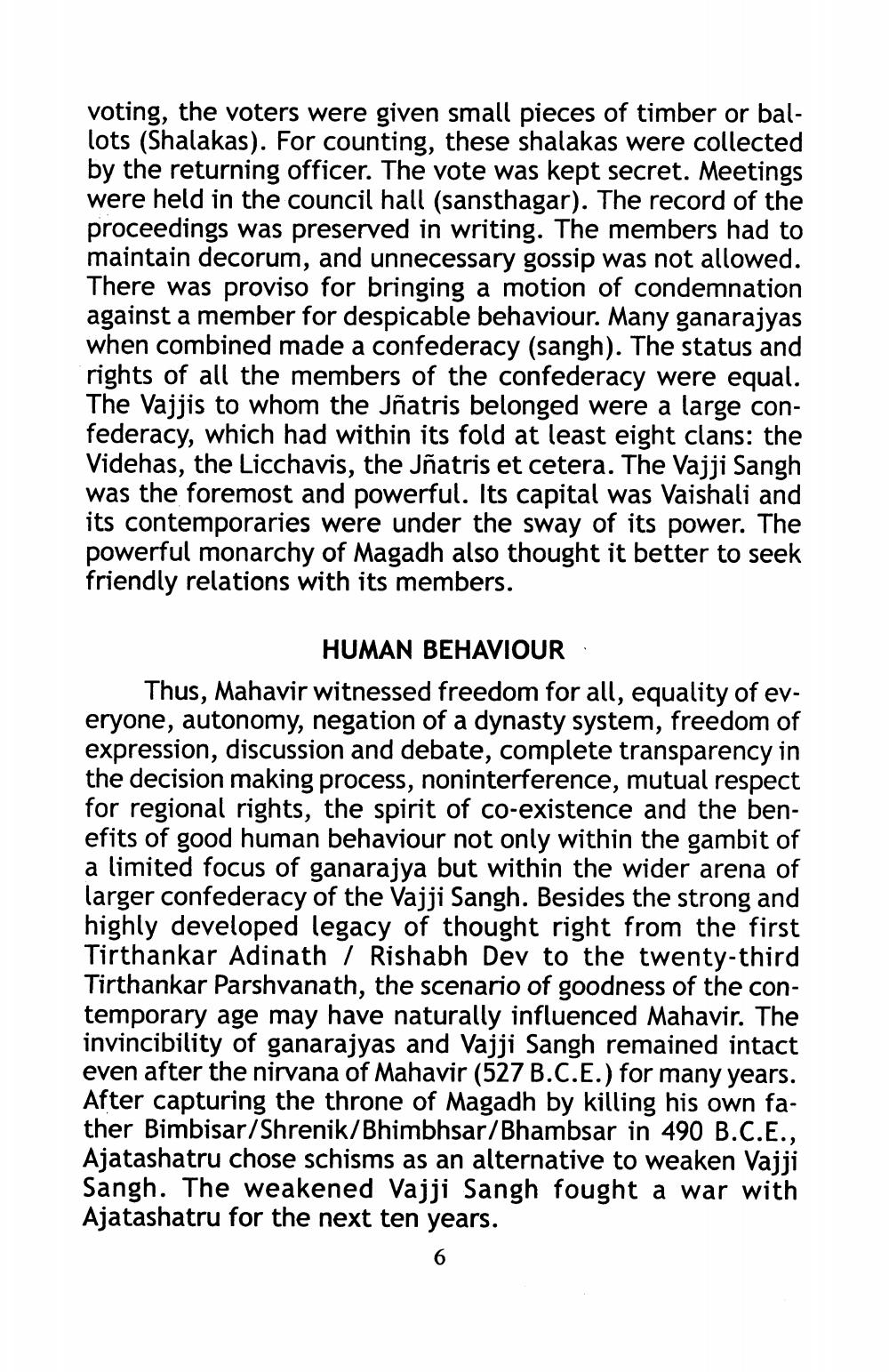Book Title: Basic Thought Of Bhagwan Mahavir Author(s): Jaykumar Jalaj Publisher: Hindi Granth Karyalay View full book textPage 7
________________ voting, the voters were given small pieces of timber or ballots (Shalakas). For counting, these shalakas were collected by the returning officer. The vote was kept secret. Meetings were held in the council hall (sansthagar). The record of the proceedings was preserved in writing. The members had to maintain decorum, and unnecessary gossip was not allowed. There was proviso for bringing a motion of condemnation against a member for despicable behaviour. Many ganarajyas when combined made a confederacy (sangh). The status and rights of all the members of the confederacy were equal. The Vajjis to whom the Jñatris belonged were a large confederacy, which had within its fold at least eight clans: the Videhas, the Licchavis, the Jñatris et cetera. The Vajji Sangh was the foremost and powerful. Its capital was Vaishali and its contemporaries were under the sway of its power. The powerful monarchy of Magadh also thought it better to seek friendly relations with its members. HUMAN BEHAVIOUR Thus, Mahavir witnessed freedom for all, equality of everyone, autonomy, negation of a dynasty system, freedom of expression, discussion and debate, complete transparency in the decision making process, noninterference, mutual respect for regional rights, the spirit of co-existence and the benefits of good human behaviour not only within the gambit of a limited focus of ganarajya but within the wider arena of larger confederacy of the Vajji Sangh. Besides the strong and highly developed legacy of thought right from the first Tirthankar Adinath / Rishabh Dev to the twenty-third Tirthankar Parshvanath, the scenario of goodness of the contemporary age may have naturally influenced Mahavir. The invincibility of ganarajyas and Vajji Sangh remained intact even after the nirvana of Mahavir (527 B.C.E.) for many years. After capturing the throne of Magadh by killing his own father Bimbisar/Shrenik/Bhimbhsar/Bhambsar in 490 B.C.E., Ajatashatru chose schisms as an alternative to weaken Vajji Sangh. The weakened Vajji Sangh fought a war with Ajatashatru for the next ten years. 6Page Navigation
1 ... 5 6 7 8 9 10 11 12 13 14 15 16 17 18 19 20 21 22 23 24 25 26 27 28 29 30 31 32 33 34
